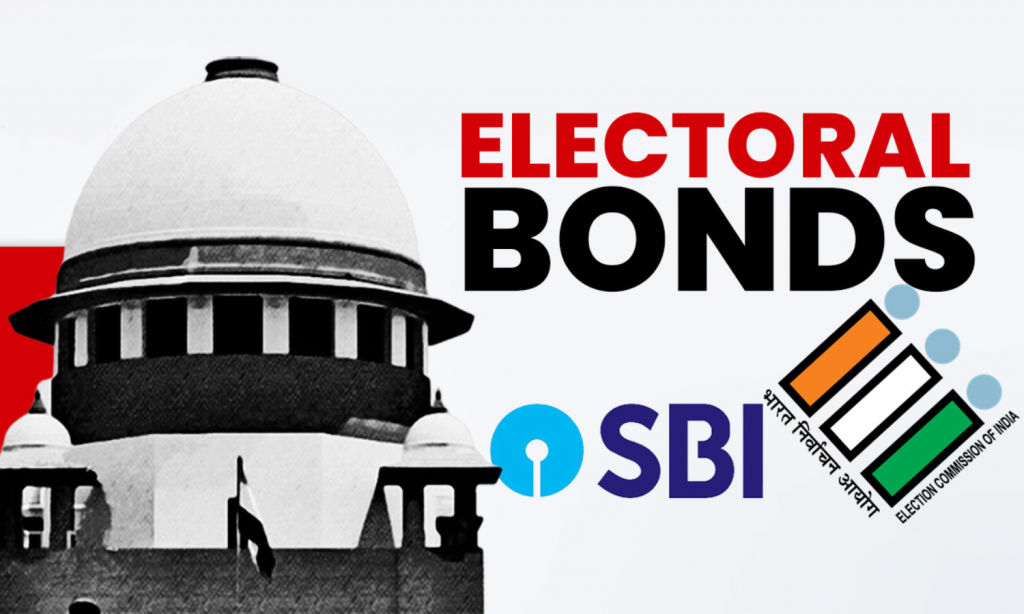Goa is abuzz with excitement as vintage bike and car owners, users, collectors and fans are decking […]

WILL SBI DIVULGE ELECTORAL BONDS DETAILS? By Dr Olav Albuquerque
Feb 17- Feb 23 2024, LAW February 16, 2024By Dr Olav Albuquerque
THE Supreme Court has directed the State Bank of India (SBI) to identify millions of anonymous donors who donated billions of rupees to political parties, thereby opening a veritable Pandora’s box of big corporates and High Network Individuals (HNIs) who have sought favours from political parties who would form the government. These companies and HNIs played a role in formulating government policies.
A five-judge Constitutional bench of the Supreme Court headed by CJI DY Chandrachud pronounced these electoral bonds were unconstitutional and said by ensuring secrecy of who donated the money to any political party, this curbed the right to information of the people and also violated the right to equality enshrined in Article 14.
The courts do not intervene in government policies on the ground that the judiciary does not have the expertise or the funds to do so. But these government policies are tailored to meet the interests of certain big business houses which donate crores of rupees to political parties whom they envisage will return to power in the general elections.
The bench directed the SBI to immediately stop from issuing such bonds and to divulge the details of those who bought them by March 31, 2024. The top court also directed the SBI to inform the Election Commission of India the details of who bought such bonds and the bonds redeemed by each political party.
BLACK MONEY FUNNEL
“POLITICAL contributions give a seat at the table to the contributor… this access also translates into influence over policy-making,’’ the CJI said. This method of electoral bonds was seen as a method to funnel black money to political parties. But the Modi government defended the policy, saying it mitigates the use of cash or “black money” in political funding, thereby allowing donors a confidential channel to contribute to any party’s funds.
These bonds were available starting from Rs1,000 and in denominations of Rs10,000, Rs100,000 and going up to Rs1,00,00,000 so there seemed to be no upper limit to fund the political parties which had to encash these bonds within a time-frame. Undeclared individuals and companies bought such bonds worth Rs165.18 billion rupees up to November 2023, according to the Association for Democratic Reforms which is an NGO doing research on election funding within India.
Not surprisingly, the ruling party has come down heavily on NGOs, with some of them like Greenpeace being forced to leave India. ADR collected data and said more than half of all donations received by political parties used this scheme. Studies showed between 2018 and March 2022, nearly 57 per cent of all these donations went to the BJP. The Congress which is slowly failing to maintain its presence as the major national political party received just 10 per cent of these electoral bonds.
This path-breaking judgment has declared unconstitutional the provisions of the Finance Act 2017 which, among other things, amended the provisions of the Reserve Bank of India Act 1934, the Representation of the People Act 1951, the Income Tax Act 1961, and the Companies Act 2013. Coming just two months before the general elections, this decision of the top court is seen as a major setback to the Narendra Modi government.
BJP BENEFITS MOST
THIS is because the BJP is seen as the largest beneficiary of the system it introduced in 2017, just three years after it came to power in 2014. The excuse put out was that these electoral bonds would wipe out black money. This was apparently a ploy of the ruling party because the Supreme Court has observed there were other methods to eradicate black money rather than floating such a scheme.
A five-judge Constitutional bench headed by the Chief Justice of India Dhanajaya Chandrachud opined the electoral bond system was unconstitutional and flouted
Laws such as the old Companies Act 1956 and the Representation of People Act, did not regulate contributions to political parties by companies and individuals, and even after it was amended in 1960, the provision declared companies could not contribute to (a) any political party; and (b) to any individual or body for any political purpose, any sum more than Rs 25,000 in any financial year or five percent of its average net profits during the three financial years immediately preceding the contribution, whichever was greater.
Under the old law, companies had to disclose the amount contributed in a financial year in their profit and loss accounts and furnish particulars of the total amount contributed and the name of the party, individual, or entity to which or to whom such amount was contributed. In 1969, Section 293A was amended to ban contributions to political parties and for political purposes. Companies which flouted this provision were fined up to Rs5,000, and every officer who defaulted could be jailed up to three years and also a fine could be levied.
With the names of those who bought such electoral bonds out in the open, this will give a big boost to transparency and reveal how much black money was paid to which political party to ensure it emerged victorious in the general elections.
















